Dominic Cummings’ 260-mile drive from London to Barnard Castle at the height of lockdown “blew a hole in public confidence” over Covid rules, the Covid-19 Inquiry has heard.
Professor David Halpern, president of the government’s Behavioural Insights Team – also known as the ‘Nudge Unit’ – told the hearing he believes Mr Cummings was “pretty blatantly breaking the rules” and “seeking to justify it”.
Earlier today, former deputy cabinet secretary Helen MacNamara said Covid social distancing rules were not followed “for one day” inside Downing Street at the height of Covid lockdown.
She also told the inquiry that Mr Cummings’ “misogynistic” WhatsApps about her should have been tackled by Boris Johnson after messages revealed the former chief adviser to the PM had called her “that c***” and said he would “handcuff her and escort her” from Downing Street.
Follow the latest Covid inquiry updates in i‘s liveblog.
The live blog is now closed
That’s all from us today on the Covid Inquiry, thank you very much for staying with us. We will be back tomorrow but in the meantime, is a run-down of today’s key events:
- Professor David Halpern, head of a behavioural science organisation that advises the government told the Covid Inquiry Dominic Cummings “blatantly broke the rules” when he visited Castle Barnard
- Evidence was presented to show Boris Johnson had queried the use of a hairdryer to fight covid
- Helen MacNamara, the former deputy cabinet secretary said a “toxic culture” had persisted throughout the government’s handling of covid
- Women experienced “obvious sexist treatment”, there was an “absence of humanity” and “macho” behaviour was rife, she said
- Mr Cummings’ “misogynistic” WhatsApps about her should have been tackled by Boris Johnson, but were overlooked
- Oliver Dowden said Boris Johnson would give a full account of his actions while at Number 10
‘Stay alert’ initiative didn’t work, inquiry hears
Turning to Professor David Halpern’s statement, Mr Keating asks why he thought the “stay alert” campaign didn’t work.
“It tells you to worry and doesn’t tell you what to do,” Professor Halpern replies.
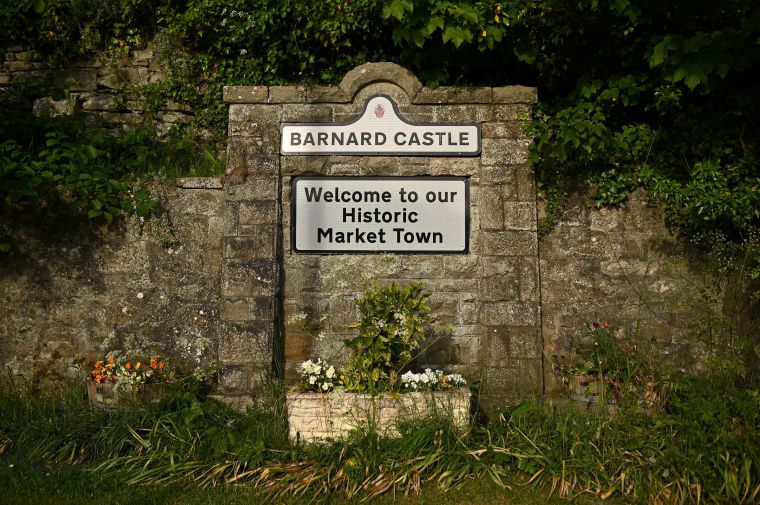
Reacting to Dominic Cummings breaching lockdown rules when he embarked on an eyesight-testing trip to Barnard Castle, Professor Halpern said it was “atrocious” and “blew a hole in public confidence”.
He added Mr Cummings was “pretty blatantly breaking the rules” and “seeking to justify it”.
Behavioural fatigue was an “unfortunate” choice of phrase
Dermot Keating is now quizzing Prof Halpern on some of the language that was used early on in the pandemic.
“Behavioural fatigue” was a phrase deployed by England’s former chief medical officer Sir Chris Whitty when measures on social distancing and other Covid strategies were being accelerated.

Prof Halpern describes the use of this phrase as “unfortunate”, and says when a community of people find themselves in situation like this, a high level of compliance is seen.
Prof Hapern has just said he was “quite shocked and depressed” about the government’s level of preparedness for the pandemic.
He said that among medical experts at a conference early on in the pandemic, it was “very strongly the impression” that once the virus was transmitted through a community, the wave would be seismic.
Who is David Halpern?
Helen MacNamara has left, and the inquiry is hearing from Prof David Halpern, president and founding director of the Behavioural Insights Team.
He is being questioned by Dermot Keating.

The organisation gave advice to the government on how the population was likely to react to measures brought in during lockdown , using models based on behavioural science.
The unit is now independent, but was initially part of the UK government.
PPE for women’s bodies never ‘discussed at top level meetings’
Helen MacNamara says she tried to raise the lack of personal protective equipment (PPE) designed for women’s bodies.
An email she sent dated 15 April 2020 asks if PPE discussions “picked up the fact” that most aren’t designed for women’s bodies, “yet the overwhelming majority of people who need PPE are women”.
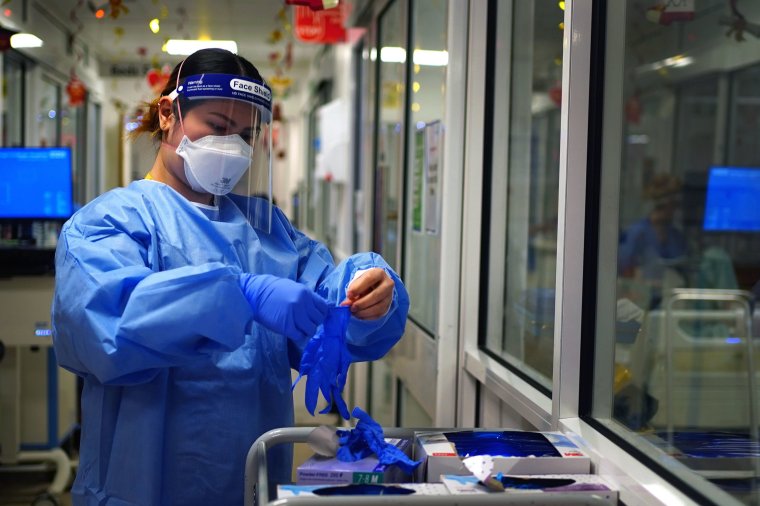
She adds that “to state the bleeding obvious, women’s bodies are different and particular face shape with masks”, and asks if that is “being taken into account in this new supply”.
In “exasperation” she brought in multiple copies of Caroline Criado Perez’s book Invisible Women, which led to “some interesting and useful discussions”.
But after Boris Johnson eventually raised the issue with Simon Stevens, the former chief executive of NHS providers, he allegedly reassured ministers the issue had been misreported, and there wasn’t in fact a problem.
Victims of domestic abuse were neglected, inquiry hears
Helen MacNamara has described the detrimental impact decisions made by the government during the pandemic had on victims of domestic abuse.
Andrew O’Connor KC, the Inquiry lawyer said Ms MacNamara previously stated decision-makers hda not done enough to consider the impact those who may be vulnerable to abuse at home.
“People don’t want to think about these things,” she said adding that the government was “looking at harm through a very narrow lens” and that “hidden harms” were being overlooked.
Johnson suggested hairdryer as a potential covid killer
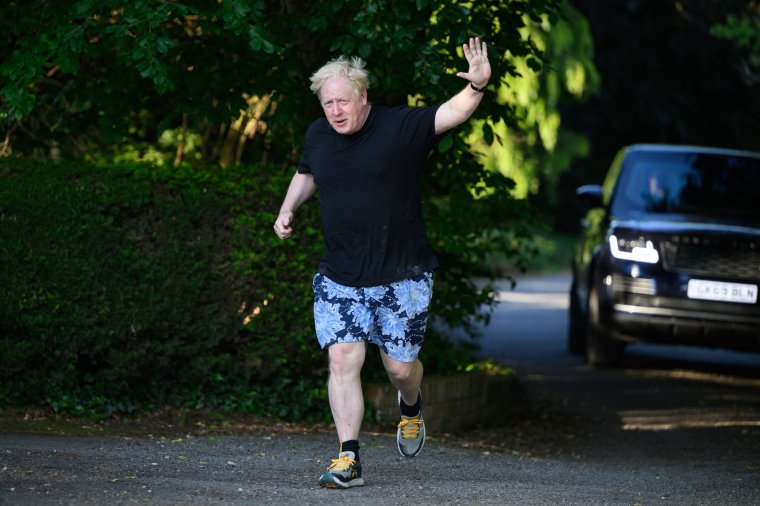
Moving away from Ms MacNamara’s witness statement for just a moment, let’s touch on Boris Johnson’s interest in the uses of a hairdryer to kill Covid.
According to Dominic Cummings’s witness statement, a “low point” for the cabinet was when Mr Johnson circulated “a video of a guy blowing a special hair dryer up his nose ‘to kill Covid’ and asked the Chief Scientific Adviser and Chief Medical Officer what they thought”.

He added that many within the government suspected Mr Johnson was the source of several stories that were leaked to the media and found to be false.
Hancock posed as a batsman while discussing Covid strategy
Taking a look at some of the evidence Helen MacNamara presented in her statement to the Covid Inquiry, on anecdote that stands out is when Matt Hancock, the then health secretary, posed as a batsman while discussing Covid.
“They bowl them at me, I knock them away,” Mr Hancock reportedly said, when discussing the challenges presented by the situation.
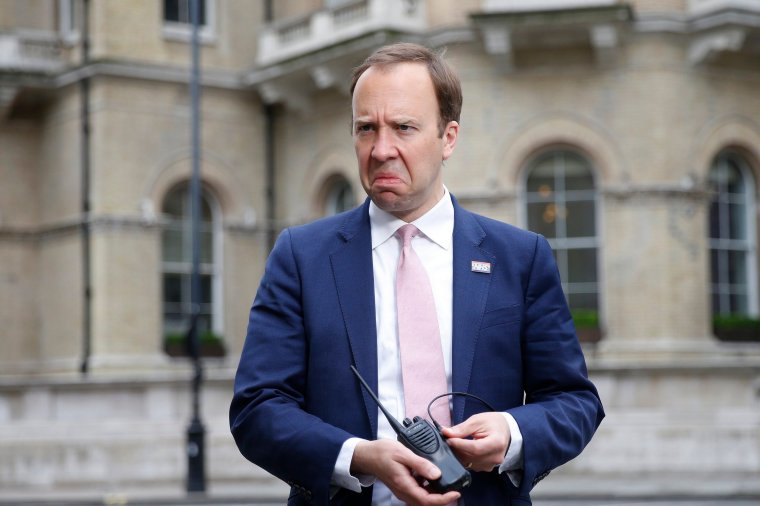
“It does partly go back to my point about nuclear levels of confidence that were being deployed, which I do think is a problem,” she said.
Who is Helen MacNamara? The senior civil servant referenced in “misogynistic” messages

There were gasps in the room at the Covid inquiry at the revelation that “misogynistic” messages were sent by Dominic Cummings about senior civil servant Helen MacNamara.
Ms MacNamara, who has held a series of positions across Whitehall, is to give evidence to the Covid inquiry on Wednesday about her role in the Government’s handling of the pandemic.
She is also likely to be quizzed on Wednesday about her involvement in the “Partygate” scandal, as well as her views on the strong language Mr Cummings used to describe her.
Click here for the full article.
Seven months to get hand sanitizer at Number 10
Ms MacNamara said it took seven months to get a hand sanitizer station installed by a door with a pin-pad in Downing Street.
She says this was “indicative of a lack of care, which was damaging in all sorts of ways”, and may explain why so many senior cabinet members, including Boris Johnson, Matt Hancock and Ms MacNamara herself, became ill with Covid.
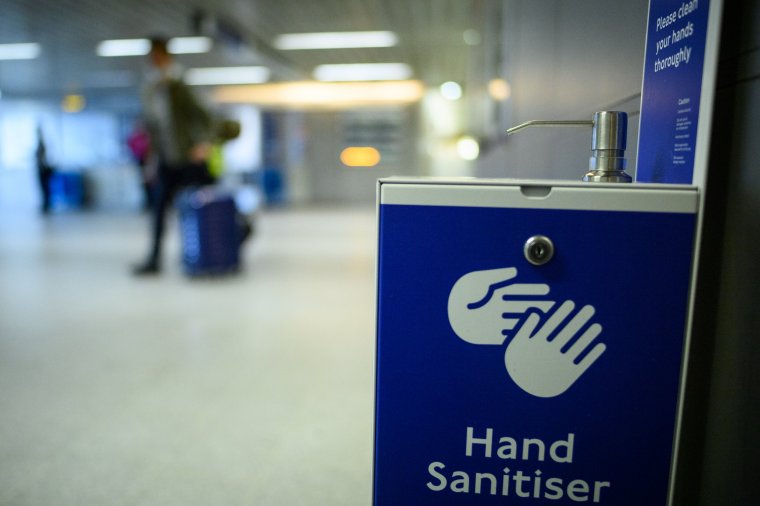
She also says she could not think of a single day when the Covid regulations were “followed properly” in the building.
“And I know that because, as I’ve said in my statement, there was one meeting where we absolutely adhered to the guidance to the letter, and that was the cabinet meeting. And everybody moaned about it … and tried to change it repeatedly.
“So I know how exceptional it was to really properly follow the guidance.”
Cummings’s crude WhatsApp messages are “both surprising and unsurprising”
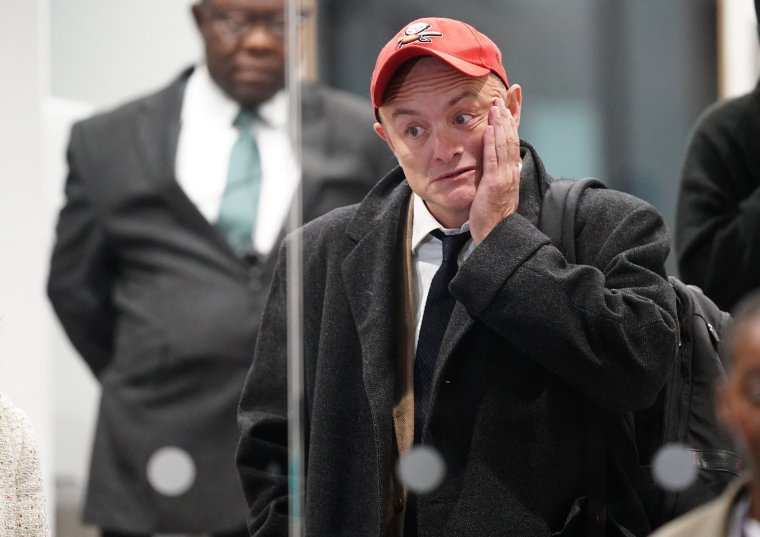
Turning now to Dominic Cummings expletive ridden messages about Ms Macnamara, the former cabinet secretary says it was representative of the “toxic culture” that was rife in government.
Mr Cummings said in August 2020 “we cannot keep dealing with this horrific meltdown of the British state while dodging stilettos from that [expletive].”
Ms MacNamara says the messages are “horrible to read, but it’s both surprising and not surprising to me”.
She said that Mr Cummings was frustrated with her at the time, but was disappointed the prime minister didn’t intervene or reprimand the “violent and misogynistic language”.
“It wasn’t a pleasant place to work,” she says. “It is just miles away from what is proper or decent or what the country deserves.”
Women experienced ‘obvious sexist treatment’ at Number 10
Widespread unhappiness and sexist behaviour was rife at Downing Street, Ms MacNamara told the Covid inquiry.
“Everything was contaminated by ego,” she says in her statement. The “macho” culture that pervaded the Government was not helping the Government plan effectively for Covid.
“The female perspective was being missed in advice and decision-making,” she says, adding that women became “invisible overnight”.
“Bad behaviours” from senior leaders were tolerated and “junior women were talked over or ignored” routinely.
She describes members of staff “breaking down in tears” and raised her concerns in an email to staff.
Katherine Hammond, a senior civil servant, said she “100 per cent agreed” this was an issue.
No further steps were taken after Ms MacNamara said she had initially raised the issue and although “talking about it collectively helped”, it did little to ameliorate the “toxic culture”.
There were no plans for when Johnson had Covid, inquiry hears
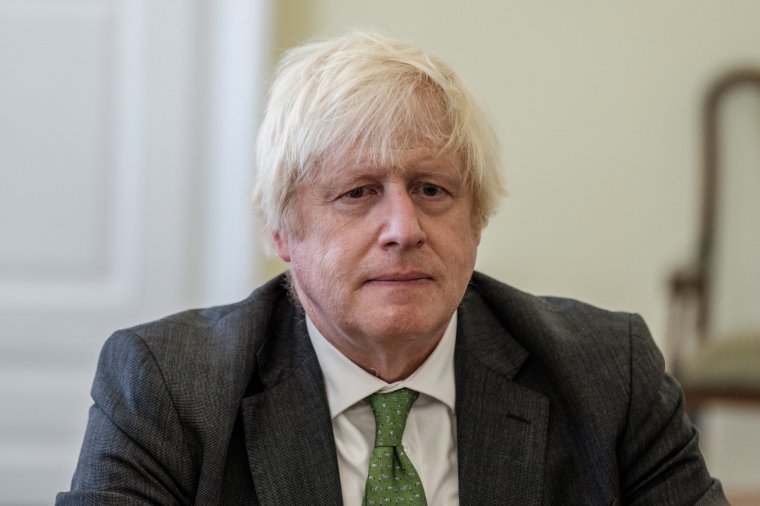
Helen MacNamara has been describing the lack of strategy that was in place for when Boris Johnson was admitted to intensive care with Covid.
She said there were no plans in place, and that she felt she was working in a “dystopian nightmare”, adding that it was awful for the prime minister to be so “gravely ill”.
Her witness statement contains documents modelling two scenarios, planning for A whether Mr Johnson was able to clearly define his wishes, and scenario B where he was “unable to communicate his wishes”
In her statement, she goes on to say: “God knows what we say here [if the PM’s illness got worse]”.
An ‘absence of humanity’ characterised Covid strategy
Andrew O’Connor KC has has moved on to Ms MacNamara’s the concerns about prisons raised in her statement.
Ms MacNamara said she was concerned about the “lack of care and comprehension there was a responsibility to look after the [prisoners] and their families”.
A passage of her statement outlines a junior official asking her about Covid policy for prisons, raising the question of whether inmates should be released to to stop them from getting coronavirus.
Ms MacNamara said she was concerned that No 10 was expected to deal with this when it should have gone to the Ministry of Justice.
She added that this was one of many problems that characterised the way the Government was handling Covid – one of which was “the absence of humanity”.
Government were treating science ‘like the word of God’, inquiry hears

Ms MacNamara is critical of the Government’s position on Covid, which she said appeared to be “following the science”, and blindly following advice they didn’t understand.
This approached heaped pressured on scientists, she said, and was a “cop-out” for ministers, adding that it was “not right to abnegate responsibility to an unelected” body of scientists.
An email exchange between Mark Sweeney, director general of the Cabinet secretariat and herself shows her praising Chris Witty, the Chief Medical Officer but saying “we don’t always go where the science tells us”.
Cummings’ hot take on MacNamara
Dominic Cummings is giving is analysis of Helen MacNamara’s witness statement.
Here’s a bit of his take:
“Helen right that the Cabinet Office has failed to follow the orders given in 2020 to keep records of everything. I asked for this to happen. So did Helen. Yet the Cabinet Office has destroyed a lot of documents – e.g some documents that I have accidental copies of do not show up in official records”.
‘time and time again’ Matt Hancock assured cabinet there was a plan for Covid, inquiry hears
Matt Hancock, the then health secretary repeatedly told Cabinet the Government had a plan to deal with Covid, Ms MacNamara said in her witness statement.
She said she heard Mr Hancock say this in person. The plans never appeared.
Following one particular Cabinet meeting, she told Department for Health official Mark Sweeney, among others, she thought the country was “absolutely f**ked”.
“I think the country is heading for a disaster. I think we are going to kill thousands of people,” she said.
“It was horrible,” she has just told the inquiry. There was “increasing concern that we were really radically in the wrong place” and that the Opposition were raising “clear, valid” concerns.
Johnson’s ‘jovial tone’ was a worry
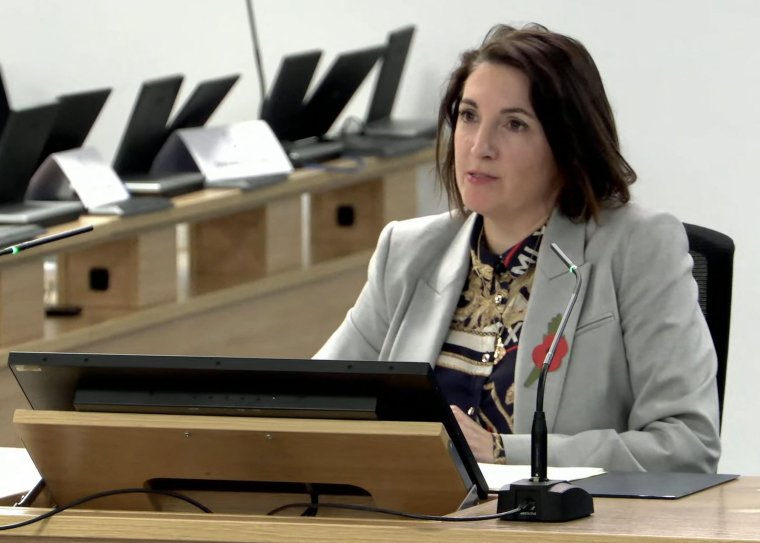
Ms MacNamara has been describing Boris Johnson’s “macho” level of confidence towards defeating Covid.
He said were were going to be “world beating at conquering covid-19, as well as everything else”, saying the Italians has been “overreacting” in their measures against Covid.
There was a “de facto assumption we were going to be great without any hesitancy”.
She added the “breezy confidence that we would do better than others had jarred with me”.
UK ministers were ‘uncertain’ and an ‘unhealthy’ culture existed in Whitehall
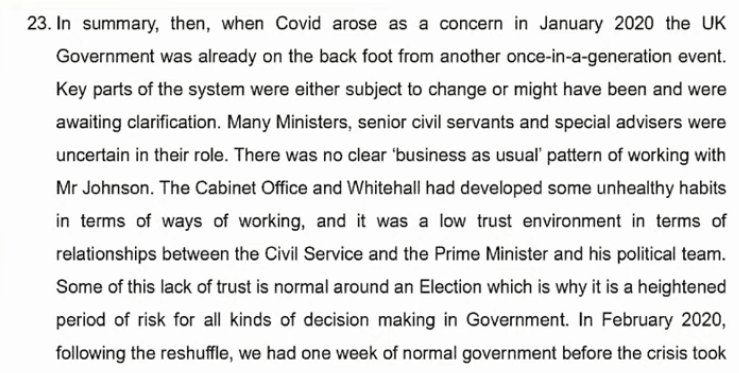
The statement says Whitehall and the cabinet had developed some “unhealthy habits” ahead of the pandemic unfolding and that a “low trust environment” existed between the civil service and prime minister.
“There was no clear business as usual day with Boris Johnson,” Ms MacNamara said.
In early cabinet meetings about Covid, Mr Johnson was very confident the UK would “sail through”. She clarified this was during January-February 2020.
Cabinet deleted phone records, MacNamara says
In a witness statement of more than 100 pages, McNamara says she hopes she has been “able to give a fair and reasonable account, and that things can be better as a result”.
She says the cabinet office deleted her work mobile phone records, and she was unable to obtain certain documents. She asked the office to provide a facsimile of the messages – which wasn’t provided.

